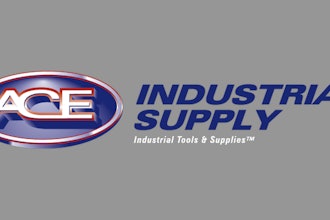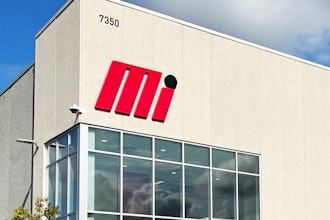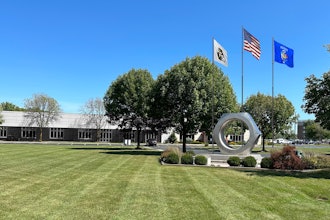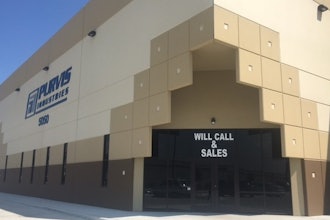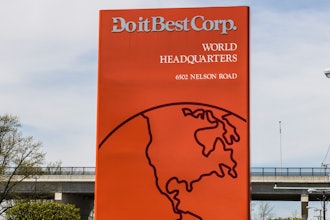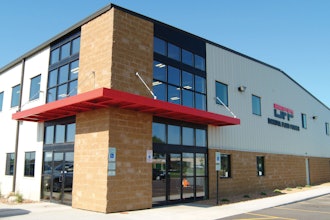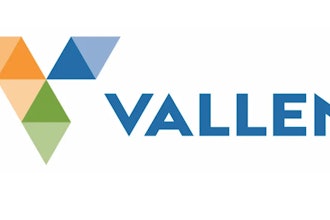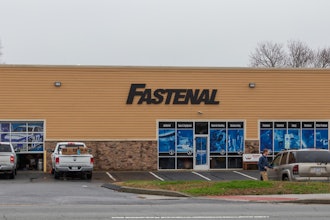The NAW Institute for Distribution Excellence has released Facing the Forces of Change®: Decisive Actions for an Uncertain Economy, the ninth edition of this acclaimed wholesale distribution strategy report. According to NAW, the Facing the Forces of Change® series remains the only major research study to analyze the future of the wholesale distribution industry within multiple lines of trade.
The NAW Institute’s partner in researching and authoring the new report is IBM’s Institute for Business Value (IBV). This newest edition provides wholesaler-distributors, suppliers, customers, and others with strategic insights into the key business and economic trends affecting the wholesale distribution supply chain through 2015. This report also describes the innovative strategies and tactics that wholesaler-distributors can use in response to these trends, especially given the most recent recession.
The report was researched and written by Guy Blissett, a wholesale distribution expert at IBM’s Institute for Business Value and an NAW Institute Fellow. Industrial Distribution recently sat down with Mr. Blissett to discuss some of the key findings in this recent edition.
ID: What did you learn about both the role and the future of the wholesaler-distributor?
GB: If we start with the future of the industry: We’re obviously coming out of a very challenging two year period for companies in pretty much any industry. Wholesale distribution was not immune to the effects of the economic downturn and many companies had to make decisions that they never had to before. Reducing head count, for example, is a very difficult decision for any company, but I think in particular for wholesaler-distributors. Because many of the businesses are family-owned, there is a strong connection to people and interpersonal relationships. This industry has been relatively stable for a really long time and was somewhat immune to the wide swings that some of the other industries have gone through. Therefore, some of the cuts they’ve been forced to make over the past two years have been exceptionally painful for the businesses, as well as on a personal level.
I think it also served as a little bit of a wake-up call for the industry as a whole that things are changing. Coming out of the economic downturn, there’s a realization that things are not going to go back to the way they were. It’s prompting a lot of soul-searching in the industry about what we need to do differently. How is wholesale distribution going to evolve in light of these changes in the economy? Consumers are trying to save money and trying to lower their debts, and I think we see the same dynamic in many businesses where they’re being very pragmatic about their business decisions. They’re cautious about building inventory, adding head count, or investing in new equipment. In general, the overall level of caution that we see out there is something that we think is going to continue. I think companies are also looking up and down the value chain, thinking about what it is that they do that is truly differentiating. While that’s not a new concept, I think now there is a much sharper focus on that type of analysis.
Companies are looking much harder at the financials and much harder at the customers they supply and sell to. They’re looking at the products they carry, at their suppliers, and actually segmenting their suppliers. As customers and suppliers go through the same exercise, there’s actually some shifting going on in terms of who does what in the value chain.
ID: What types of opportunities might this bring?
GB: I think it creates a very powerful upside for wholesaler-distributors, where they must think innovatively about what they do, and their role in the supply chain. Integrated supply is getting another look, and so are the services that the wholesaler-distributor can provide to their customers. Those wholesaler-distributors who are able to bring a level of sophistication in terms of the analysis and understanding of the value they bring and the cost to deliver those services are able to have very deep, fact-based discussions with their customers. It’s not necessarily about having to have the lowest price for a particular service, but it’s about being able to have a fact-based discussion about the value that you bring. I think this whole notion of value is very important, and it’s no longer just about revenues, gross margins, and putting the customer first. It’s understanding the value that you can create for yourself, as well as for your customers and suppliers, and being able to quantify that.
I spoke very recently with a large electrical and industrial distributor, and the CEO there was very definitive in saying that one of the things that has served them well over the last three to five years—and will continue to serve them well—is the ability of the company and their sales force to have fact-based discussions with their larger customers about the services that they’ve delivered… so when they go in there and talk about a particular service offering, there are no secrets. It’s a very open, two-way dialogue about what the service is and how it will be structured, how it should be priced, and why that particular offering should be priced that way. So this particular distributor is then able to demonstrate very clearly the cost to themselves of delivering that service, as well as the value to the customer of them outsourcing that particular business back to the wholesaler-distributor.
This whole focus on analytics and services goes very much hand in hand. In this year’s iteration of Facing the Forces of Change, we looked at the current economic environment and what it means for wholesaler-distributors in four major areas of the business. One was human capital, one was information technology, one was services, and the other was analytics. While we dealt with each one of those topics individually, they’re very much linked. When you have a conversation about analytics—and how to become a more analytical wholesaler-distributor—that is all based on having great data from across the organization and being able to pull that data together and put it into the hands of the right people so they can actually do something with it. Information technology is very important as an enabler of the analytics, and analytics are increasingly important as a way to create financial benefit for wholesaler-distributors from the services they provide, and from a human capital perspective. It’s a whole different conversation that the distributors are having with their customers and suppliers now. It’s no longer strictly focused on selling a product at a price; it’s a much broader discussion of the value that they can bring, putting some services around the products, and understanding which services are truly differentiating and integral to the business.
ID: Do you think the issue of services will create more consolidation, as some of the smaller distributors won’t have the resources to offer that kind of value add?
GB: I think for the smaller wholesaler-distributors in the industry, there’s going to be a lot of pressure on them to really understand the value that they bring, and to have a very strong sense as to their own value proposition. Local market knowledge might not be sufficient in the future. You have to look at your own business and understand your own cost structure, and have fact-based discussions with your customers. That shouldn’t be something that is unique to large distributors. Increasingly, many of the analytical tools are available at relatively low cost; you can do some powerful analysis just using some very basic tools. It’s about being able to do that analysis, or finding somebody external who can do it for you at an accessible cost. And then, having an organization—whether it’s a sales force or marketing organization—that’s then able to take that analysis and have the intelligent conversations with your customers and suppliers.
I think there will be increased pressure on smaller wholesaler-distributors. Part of it will be this shifting in the value chain, part of it will be other consequences, like the economic crisis. The smaller distributors who perhaps struggled through and are still around after the economic crisis may have trouble accessing capital as the economy turns around and volumes start to pick up. That may cause some further consolidation in the industry that might not otherwise have happened. But I think there will always be a strong niche for smaller wholesaler-distributors. It’s just incumbent on those—as well as the larger ones—to really understand the value that they bring and be able to quantify it.
Pricing and order information are available at www.naw.org/ftf10.
About NAW and the NAW Institute for Distribution Excellence:
The National Association of Wholesaler-Distributors (NAW) was created in 1946 to deal with issues of interest to the entire merchant wholesale distribution industry, thereby freeing affiliated associations to concentrate on the concerns specific to their lines of trade. NAW is a federation of about 80 wholesale distribution associations and thousands of individual firms that collectively total more than 40,000 companies.
The role of the NAW Institute for Distribution Excellence is to sponsor and disseminate research into strategic management issues affecting the wholesale distribution industry. The NAW Institute aims to help merchant wholesaler-distributors remain the most effective and efficient channel in distribution.
About IBM Institute for Business Value:
The IBM Institute for Business Value is comprised of more than 50 consultants who conduct research and analysis across multiple industries and functional disciplines. IBV develops fact-based strategic insights for senior executives around critical public and private sector issues. IBV has a worldwide presence, drawing on consultants in 11 countries to identify issues of global interest and to develop practical recommendations with local relevance.









